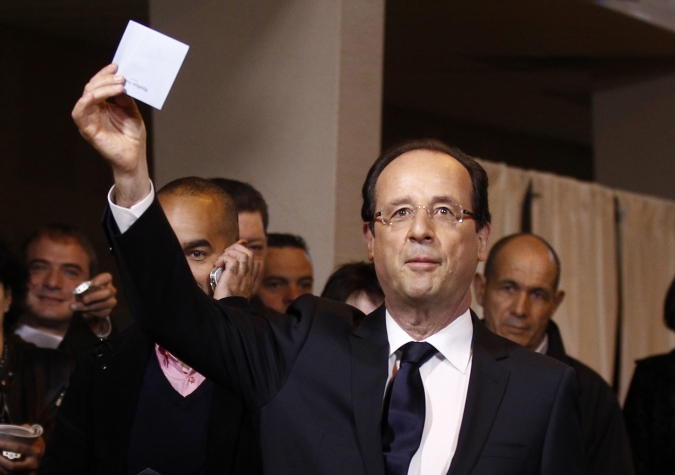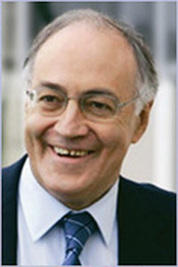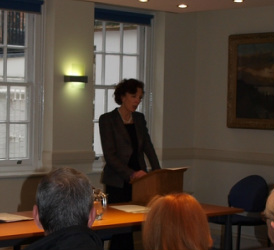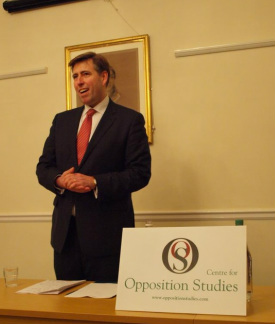<< Return to Previous Events
Presidential and Parliamentary Elections: A New Path for France

Wednesday 20th June 2012
The Centre for Opposition Studies hosted a lecture and discussion on recent political developments in France with Dr Sophie Loussouarn.
On 6 May 2012, the incumbent President Sarkozy was defeated by socialist candidate François Hollande, who won with 51.6% of the vote. It was a very close victory for the winner, with Hollande gaining the smallest majority a President has ever had in the Fifth Republic. On 15 May, President Hollande made a point of inaugurating a new style of presidency, and has appointed the leader of the socialist party in the National Assembly, Jean-Marc Ayrault, as Prime Minister. The new Cabinet includes 34 ministers, two of whom are communist. The parliamentary elections of 10 and 17 June are a key test for the newly-elected President, and our event will consider how these affect the future direction of French politics.
Dr Sophie Loussouarn is an alumna of the Ecole Normale Supérieure (Ulm) and Oxford (Wadham College). She graduated from the Institute of Political Science in Paris and is an expert on British politics and economics. She lectures at the Sorbonne and at the University of Amiens in France and is a visiting professor at the University of Alicante in Spain. She wrote a book on the British Economy since 1945, and has recently published a book on the Blair years, The Political Odyssey of Tony Blair (Séguier, 2009), and David Cameron, a Conservative of the twenty-first century (Séguier, 2010). The second edition of her textbook on British institutions, Definitely British Absolutely American, was released in August 2011. She covered the British elections of 2010 on French TV and is often interviewed about the UK on French radio and television.
Leading the Opposition The Rt. Hon. Lord Howard of Lympne, CH, QC
 Wednesday, May 9, 2012, 6pm
Wednesday, May 9, 2012, 6pm
Institute for Government, 2 Carlton Gardens
In association with the Institute for Government, we were pleased to present a lecture by one of our Honorary Presidents, Lord Howard of Lympne, chaired by the Institute for Government’s Director, Rt Hon Peter Riddell.
Lord Howard discussed how policy is made, resourced and developed in opposition, as well as the challenges of effective opposition leadership based on his experience as Leader of the Opposition between 2003 and 2005.
Watch a video of the event below (courtesy of the Institute for Government):
Noble Opposition: Scrutiny in the Lords
The Rt. Hon. Baroness Royall of Blaisdon Leader of the Opposition, House of Lords.
9 February 2012
 Presented as part of our 'Aspects of UK Opposition" series, the Leader of the Opposition in the House of Lords presented her thoughts on the role of the upper chamber in scrutinising and holding the Government to account.
Presented as part of our 'Aspects of UK Opposition" series, the Leader of the Opposition in the House of Lords presented her thoughts on the role of the upper chamber in scrutinising and holding the Government to account.
Having served in the last Cabinet as Leader of the House before now leading the Labour peers on the other side of the Chamber, Baroness Royall had a wealth of experience on which to draw in her lecture. She addressed a wide range of important issues, such as the historic imbalance in party representation in the upper House, and the impact of the coalition on the way it works.
She also directed criticism at the suggestion the Government may be planning to increase its strength by creating new peers:
““What the Government is seeking to do here is to change the fundamental constitutional role of the House of Lords. Instead of it being a scrutinising and revising chamber, holding the government of the day to account – the very role described by the Government in its White Paper on further reform of the Lords – the coalition is seeking to return the House of Lords to the rubber-stamp role it used to have in the days of Conservative dominance."
You can download the full text of her speech as a PDF here.
The 1922 Committee - A critical friend? - Graham Brady MP, Chairman of the 1922 Committee
24th January 2012
 In the first of our series of events looking at different aspects of opposition in the UK, we were pleased to welcome the Chairman of the Conservative backbench 1922 Committee, Graham Brady MP, to address the Centre.Whilst we today think mainly of the Labour party when we consider opposition, there is also an important role played by backbench members of the parties in government.
In the first of our series of events looking at different aspects of opposition in the UK, we were pleased to welcome the Chairman of the Conservative backbench 1922 Committee, Graham Brady MP, to address the Centre.Whilst we today think mainly of the Labour party when we consider opposition, there is also an important role played by backbench members of the parties in government.
Opposition involves not just trying to get rid of a government, but also holding it to account and influencing its policy direction. In that regard, the backbench 1922 Committee may certainly be said to act as a “critical friend” to the Government.
In his talk, Mr Brady addressed this issue, and shared his thoughts on the proper role of the Committee in communicating views of MPs to the party leadership.